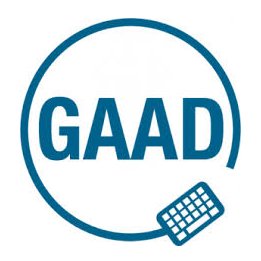Note: This blog is reposted from Benetech’s Blog.
By Robin Seaman, Director, Content Acquisition
Today, May 21, in recognition of Global Accessibility Awareness Day (GAAD), we are happy to share  that the global publishing company John Wiley & Sons has announced that, starting this month, it will begin including alternative text (alt text) in nearly all of its frontlist books. By incorporating alt text into its workflow, Wiley makes its content accessible to users of all abilities. The company developed its alt text guidelines in consultation with Benetech’s DIAGRAM Center and other industry standards organizations. Wiley is one of the first major publishers to include alt text this broadly. Our team is honored to have contributed to this important win on the path towards accessibility in mainstream publishing.
that the global publishing company John Wiley & Sons has announced that, starting this month, it will begin including alternative text (alt text) in nearly all of its frontlist books. By incorporating alt text into its workflow, Wiley makes its content accessible to users of all abilities. The company developed its alt text guidelines in consultation with Benetech’s DIAGRAM Center and other industry standards organizations. Wiley is one of the first major publishers to include alt text this broadly. Our team is honored to have contributed to this important win on the path towards accessibility in mainstream publishing.
Alt text is a description that provides contextual meaning to images and illustrations. A building block of accessibility, alt text offers an alternative way to perceive images and illustrations for readers with disabilities, such as those who are blind or have visual impairments. Non-visual browsers and screen readers express alt text, thus enhancing comprehension and providing a richer reading experience for these readers. As an element of universal design, alt text improves not only the accessibility of digital images but also the versatility of digital content for all readers’ benefit: for instance, it can enable read-aloud for a user who prefers to listen to a book.
Benetech established the DIAGRAM Center—a research and development center and an initiative of our Global Literacy Program—in order to make it easier, cheaper, and faster to create and use accessible digital images. The DIAGRAM team and partners are exploring and developing cutting-edge image accessibility technology solutions for text alternatives as well as different learning modalities, such as tactile graphics, sonification, haptic interfaces and 3D printed images.
In its announcement, Wiley quotes Benetech President, Betsy Beaumon, who says: “Readers accessing content through digital audio simply hear the word ‘image’ when alt text is not provided, depriving them of information critical to understanding the relevance of the image. By ensuring that alt text is provided for all images, Wiley is showing great leadership in the growing movement in the publishing industry to ensure that content that is born digital is also ‘born accessible.’ This is a milestone achievement.”
Thank you, Wiley, for your partnership and leadership in making accessibility a critical and integral component in the creation of all content!

A million thanks to Wiley for making this critical decision. If I could do it without violating copyright law, I would sing the melody of Abba’s song “Thank you for the music” while changing the words “Thank you for the music” to “Thank you for the ebooks”.
I think that Wiley publishes many scholarly books, and also, is the publisher and distributor of the famous For Dummies series, right? Please, please do not make the mistake of letting this kind of effort only end up as a one-time corporate publicity stunt. Blind people, especially totally blind people like me, REALLY depend on good Alt Texts to comprehend images and tell whether the image is an illustration, portrait, diagram or a table. Can you understand how much a blind person would be frustrated if he was reading a book in braille or listening to a book in Daisy or Mp3 and there was no image description and the braille page or the TtS voice reading the book just said, “Image” or “Image with no caption”?
I ask all Wiley people to please try to think of your blind friends or family members while making all ebook versions of your publications. As this blog entry puts it, let all ebooks be “born accessible”.
Thanks.